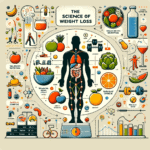
What Foods Shouldn’t I Eat On Semaglutide?
What Foods Shouldn’t I Eat On Semaglutide? Semaglutide is a medication that is commonly used to treat type 2 diabetes.
It belongs to a class of drugs called glucagon-like peptide-1 (GLP-1) receptor agonists, which work by increasing insulin production and reducing the amount of glucose produced by the liver.
Semaglutide has been shown to be highly effective in managing blood sugar levels and promoting weight loss in individuals with type 2 diabetes.
Understanding the Role of Diet in Semaglutide Treatment
Diet plays a crucial role in managing diabetes, and this is especially true when taking Semaglutide. A healthy diet can help control blood sugar levels, promote weight loss, and improve overall health. When combined with Semaglutide treatment, a proper diet can enhance the effectiveness of the medication and lead to better outcomes for individuals with type 2 diabetes.
Semaglutide works by mimicking the effects of a hormone called GLP-1, which is naturally produced in the body. GLP-1 helps regulate blood sugar levels by stimulating insulin secretion and reducing the production of glucagon, a hormone that raises blood sugar levels. By following a healthy diet, individuals can further support the action of Semaglutide and optimize their diabetes management.
Foods to Avoid While Using Semaglutide

Processed Foods
While there are no specific foods that need to be completely avoided while taking Semaglutide, there are certain types of foods that can have a negative impact on the medication’s efficacy and overall health. It is important to be mindful of these foods and make informed choices to support successful Semaglutide treatment.
1. Processed foods: Processed foods are often high in unhealthy fats, added sugars, and sodium. These foods can contribute to weight gain, increase inflammation in the body, and raise blood sugar levels. When on Semaglutide, it is best to avoid or limit the consumption of processed foods to maintain stable blood sugar levels and support weight loss.
2. High-fat foods: High-fat foods, especially those that are high in saturated and trans fats, can interfere with the action of Semaglutide. These foods can lead to insulin resistance, increase inflammation, and contribute to weight gain. It is important to choose healthier sources of fats, such as avocados, nuts, and olive oil, while minimizing the intake of fried foods, fatty meats, and full-fat dairy products.
3. Sugary foods: Sugary foods, including desserts, sugary beverages, and processed snacks, can cause a rapid spike in blood sugar levels. This can counteract the effects of Semaglutide and make it more difficult to manage diabetes. It is advisable to limit the consumption of sugary foods and opt for healthier alternatives, such as fresh fruits or sugar-free options.
4. Alcohol: Alcohol can have a negative impact on blood sugar control and can interact with Semaglutide. It can cause hypoglycemia (low blood sugar) or hyperglycemia (high blood sugar) depending on the individual’s response. It is important to consume alcohol in moderation and monitor blood sugar levels closely when drinking.
5. Foods with high sodium content: Foods that are high in sodium can raise blood pressure and increase the risk of cardiovascular complications. When taking Semaglutide, it is important to limit the intake of processed meats, canned soups, and fast food, which are often high in sodium. Opting for fresh, whole foods and using herbs and spices to flavor meals can help reduce sodium intake.
Processed Foods and their Negative Impact on Semaglutide Treatment
Processed foods are foods that have been altered from their natural state through various methods such as canning, freezing, or adding preservatives. These foods are often high in unhealthy fats, added sugars, and sodium. They are also typically low in fiber and essential nutrients.
When on Semaglutide, it is important to avoid or limit the consumption of processed foods. These foods can contribute to weight gain, increase inflammation in the body, and raise blood sugar levels. They can also interfere with the action of Semaglutide and make it more difficult to manage diabetes.
Highly processed foods are often high in unhealthy fats, such as trans fats and saturated fats. These fats can lead to insulin resistance, increase inflammation, and contribute to weight gain. They can also raise cholesterol levels and increase the risk of heart disease. By choosing whole, unprocessed foods, individuals can support the action of Semaglutide and improve their overall health.
High-Fat Foods and their Effect on Semaglutide Efficacy

Eating High Fat Foods
High-fat foods, especially those that are high in saturated and trans fats, can have a negative impact on Semaglutide treatment.
These foods can lead to insulin resistance, increase inflammation in the body, and contribute to weight gain. They can also interfere with the action of Semaglutide and make it less effective in managing blood sugar levels.
While using Semaglutide, it is important to choose healthier sources of fats. These include avocados, nuts, seeds, and olive oil. These fats are rich in monounsaturated and polyunsaturated fats, which have been shown to have numerous health benefits. They can help reduce inflammation, improve insulin sensitivity, and support weight loss.
On the other hand, it is advisable to minimize the intake of high-fat foods such as fried foods, fatty meats, full-fat dairy products, and processed snacks.
These foods are often high in saturated and trans fats, which can raise cholesterol levels and increase the risk of heart disease. By making healthier choices when it comes to fats, individuals can optimize the effectiveness of Semaglutide and improve their diabetes management.
Sugary Foods and their Impact on Blood Sugar Levels
Sugary foods, including desserts, sugary beverages, and processed snacks, can have a significant impact on blood sugar levels. These foods are typically high in added sugars, which can cause a rapid spike in blood sugar levels. When taking Semaglutide, it is important to limit the consumption of sugary foods to maintain stable blood sugar levels and support the action of the medication.
When blood sugar levels spike, the body releases insulin to help bring them back down. However, in individuals with diabetes, this process may not work properly. Semaglutide helps regulate blood sugar levels by stimulating insulin secretion and reducing the production of glucagon, a hormone that raises blood sugar levels. By avoiding or minimizing the intake of sugary foods, individuals can support the action of Semaglutide and improve their diabetes management.
Instead of sugar loaded foods, it is advisable to choose healthier alternatives. Fresh fruits, for example, are a great option as they provide natural sugars along with fiber and essential nutrients. Sugar-free options can also be considered, but it is important to read labels carefully as some sugar-free products may still contain artificial sweeteners that can have their own negative health effects.
Alcohol and its Interaction with Semaglutide

Alcohol
Alcohol can have a negative impact on blood sugar control and can interact with Semaglutide. It can cause hypoglycemia (low blood sugar) or hyperglycemia (high blood sugar) depending on the individual’s response. When consuming alcohol, it is important to do so in moderation and monitor blood sugar levels closely.
Drinks containing alcohol can lower blood sugar levels by inhibiting the liver’s ability to produce glucose. This can lead to hypoglycemia, especially if alcohol is consumed on an empty stomach or in large quantities. On the other hand, alcohol can also raise blood sugar levels as it is high in calories and can be converted into glucose by the liver.
When taking Semaglutide, it is important to be mindful of alcohol consumption and its potential effects on blood sugar levels. It is advisable to consume alcohol in moderation and to do so with food to help stabilize blood sugar levels. Monitoring blood sugar levels closely and adjusting medication doses as necessary is also important when drinking beverages with alcohol.
Foods with High Sodium Content and their Effect on Blood Pressure
Foods that are high in sodium can raise blood pressure and increase the risk of cardiovascular complications. When taking Semaglutide, it is important to limit the intake of foods that are high in sodium to maintain healthy blood pressure levels and support overall health.
High sodium intake can lead to fluid retention, which can increase blood volume and put extra strain on the heart and blood vessels. This can raise blood pressure and increase the risk of heart disease, stroke, and kidney problems. By choosing fresh, whole foods and minimizing the consumption of processed meats, canned soups, and fast food, individuals can reduce their sodium intake and support the action of Semaglutide.
Opting for herbs and spices to flavor meals instead of salt can also help reduce sodium intake. Additionally, reading food labels carefully and choosing low-sodium or sodium-free options when available can further support a healthy diet and successful Semaglutide treatment.
The Importance of a Balanced Diet for Semaglutide Treatment
A balanced diet is crucial for successful Semaglutide treatment. A balanced diet includes a variety of nutrient-dense foods from all food groups in appropriate portions. It provides the body with essential nutrients, supports stable blood sugar levels, promotes weight loss, and improves overall health.
A good diet for individuals with diabetes typically includes:
- Lean proteins: such as poultry, fish, tofu, legumes, and low-fat dairy products.
- Whole grains: such as brown rice, quinoa, whole wheat bread, and oats.
- Fruits and vegetables: a variety of colorful fruits and vegetables to provide essential vitamins, minerals, and fiber.
- Healthy fats: such as avocados, nuts, seeds, and olive oil.
- Low-fat dairy or dairy alternatives: such as skim milk, low-fat yogurt, or unsweetened plant-based milk.
- Limited added sugars: choosing natural sources of sweetness, such as fresh fruits, and minimizing the consumption of sugary foods and beverages.
A proper diet can help optimize the effectiveness of Semaglutide by providing the body with the necessary nutrients for proper functioning. It can also support weight loss, which is often a goal for individuals with type 2 diabetes. By following a balanced diet, individuals can improve their diabetes management and overall health.
Conclusion: What Foods Shouldn’t I Eat On Semaglutide?
In conclusion, diet plays a crucial role in the successful treatment of type 2 diabetes with Semaglutide. By making informed food choices, individuals can support the action of the medication, maintain stable blood sugar levels, promote weight loss, and improve overall health.
When using Semaglutide, it is important to avoid or limit the consumption of processed foods, high-fat foods, sugary foods, alcohol, and foods with high sodium content. These foods can have a negative impact on blood sugar control, weight management, and overall health. Instead, individuals should focus on consuming a balanced diet that includes lean proteins, whole grains, fruits and vegetables, healthy fats, and limited added sugars.
By working closely with a healthcare provider or registered dietitian, individuals can develop a personalized meal plan that supports successful Semaglutide treatment. Regular monitoring of blood sugar levels and medication adjustments may also be necessary to ensure optimal diabetes management. With the right diet and medication regimen, individuals can effectively manage their type 2 diabetes and improve their overall well-being.






